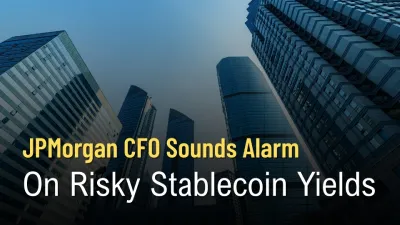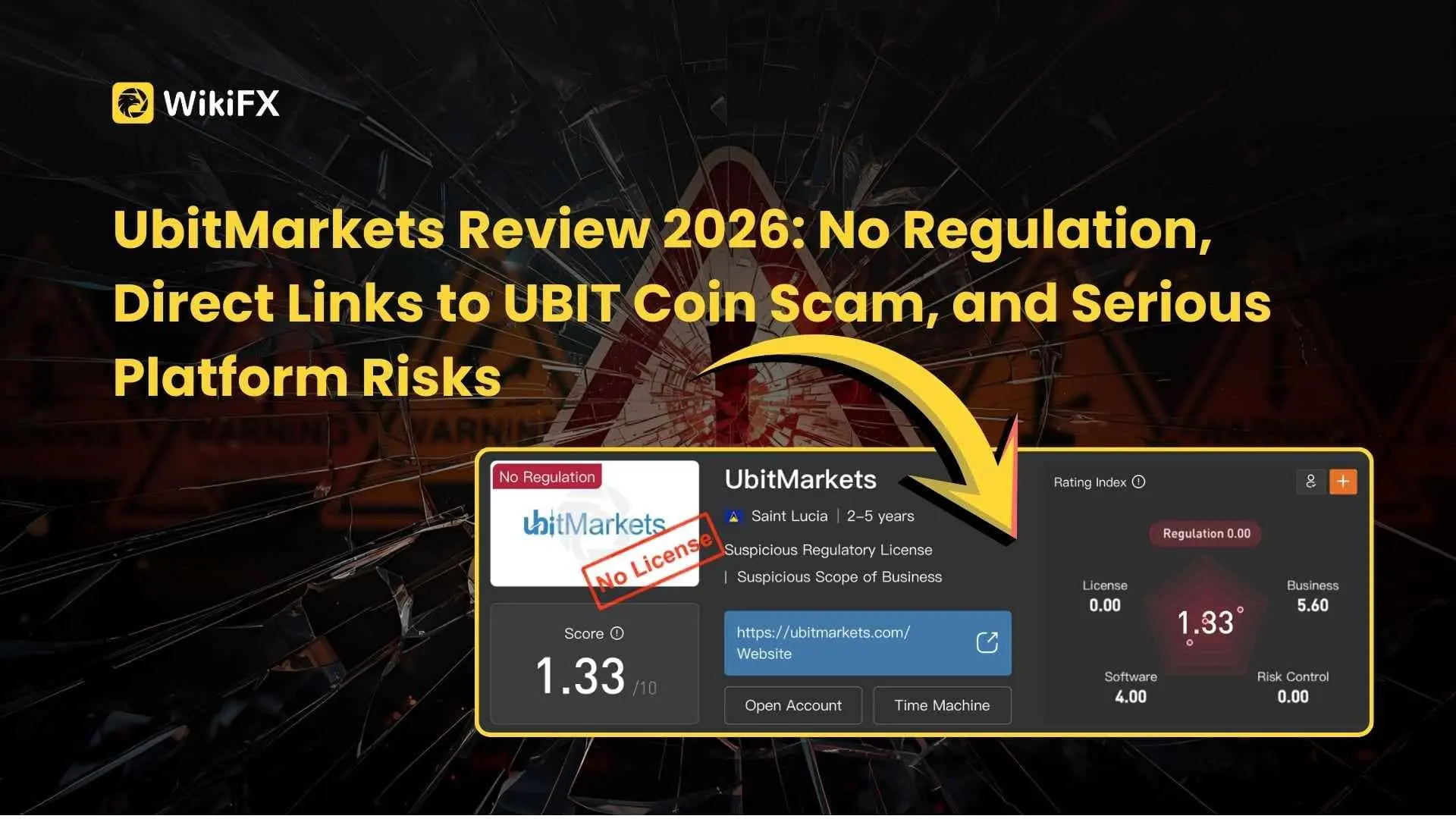JPMorgan CFO Sounds Alarm on Risky Stablecoin Yields
JPMorgan CFO warns high-return stablecoins could endanger financial stability as global regulators move toward tighter digital asset rules.
简体中文
繁體中文
English
Pусский
日本語
ภาษาไทย
Tiếng Việt
Bahasa Indonesia
Español
हिन्दी
Filippiiniläinen
Français
Deutsch
Português
Türkçe
한국어
العربية
Abstract:The rise of cryptocurrencies and blockchain technology has been compared to transformative milestones such as the creation of money and the advent of the internet. These innovations are reshaping the way assets are valued and traded, pushing the boundaries of traditional finance. However, as with any disruptive technology, the journey is fraught with complexities that demand careful consideration.

The rise of cryptocurrencies and blockchain technology has been compared to transformative milestones such as the creation of money and the advent of the internet. These innovations are reshaping the way assets are valued and traded, pushing the boundaries of traditional finance. However, as with any disruptive technology, the journey is fraught with complexities that demand careful consideration.
The Growth of Digital Assets
The global adoption of digital assets has surged at an extraordinary pace. Reports indicate that 6.8% of the worlds population, approximately 562 million individuals, now own cryptocurrencies. Younger generations, particularly those aged 25 to 34, make up the largest demographic. Asia leads the way in adoption, with an annual growth rate of 21.8%, reflecting the region's openness to digital financial innovations.
Some nations have gone so far as to recognise Bitcoin as legal tender, a bold step taken by El Salvador and the Central African Republic. Others, like the United States, have introduced crypto exchange-traded funds, adding legitimacy to this evolving asset class. Meanwhile, Malaysia has established a comprehensive framework under the Securities Commission Malaysia (SC) to regulate digital assets and protect investors, reflecting a balanced approach to innovation and oversight.

At the core of these developments is blockchain technology, a decentralised digital ledger maintained by a network of nodes. Its transparent and tamper-resistant design provides a stark contrast to traditional financial systems, which often operate within opaque structures. Blockchains applications extend beyond cryptocurrencies to include tokenisation, a process that digitises asset ownership, making high-value investments accessible to a broader audience.
Tokenisation enables fractional ownership of assets such as real estate, fine art, and intellectual property, breaking down financial barriers. This innovation has drawn the attention of financial giants like BlackRock and JP Morgan, with some predicting that tokenised assets could represent a $30.1 trillion market by 2034. In Malaysia, efforts are underway to integrate tokenisation into sectors ranging from finance to healthcare, signalling a commitment to leveraging blockchains potential.
Regulatory Challenges and Opportunities
Despite its promise, blockchain technology introduces significant challenges. Its decentralised nature, while empowering, creates vulnerabilities that can be exploited by bad actors. However, contrary to popular belief, blockchains transparency often makes fraudulent activity more traceable than in traditional finance.
Malaysias regulatory framework addresses these concerns. Strict know-your-customer (KYC) requirements and a publicly accessible list of licensed digital asset exchanges are among the measures designed to protect investors. Law enforcement, too, is adapting to the digital age, using advanced tools to trace and combat crypto-related crimes.
Globally, regulatory approaches vary. The European Unions Markets in Crypto-Assets Regulation (MiCA) aims to provide uniform guidelines across member states, while the United States grapples with conflicting perspectives between its regulatory bodies. As policymakers refine their frameworks, questions remain about how best to balance innovation with stability.
A Future of Uncertainty and Potential
The integration of blockchain and digital assets into global finance seems inevitable. Yet, debates persist over the best way to harness these technologies without compromising economic stability. Malaysia, like many other nations, must navigate this uncertain terrain, fostering innovation while protecting its citizens.
As the world looks ahead, the question remains: Is this the dawn of a financial revolution, or are we racing towards a precarious future? The answer may lie in how effectively nations manage the delicate interplay between technological advancement and regulatory vigilance.

Disclaimer:
The views in this article only represent the author's personal views, and do not constitute investment advice on this platform. This platform does not guarantee the accuracy, completeness and timeliness of the information in the article, and will not be liable for any loss caused by the use of or reliance on the information in the article.

JPMorgan CFO warns high-return stablecoins could endanger financial stability as global regulators move toward tighter digital asset rules.

UbitMarkets review reveals no valid license and direct links to a fraudulent project, raising serious concerns over investor fund safety.

Is withdrawing capital from PaxForex too difficult for traders? Has the China-based forex broker made you trade gold, silver and cryptocurrencies despite not having an office in the United States? Do you find its operational style suspicious? You are not alone! Several traders have expressed these concerns when trading with the broker. In this PaxForex review article, we have exposed the broker through user comments made on several review platforms. Take a look!

When traders ask, "Is OneRoyal legit or a scam?" The answer isn't simply yes or no. OneRoyal is a trading company that has been running for almost twenty years and has important licenses from top financial authorities. This background puts it far away from typical quick scam operations. However, questions about whether it's trustworthy are reasonable and often come from its complicated business structure, the use of overseas companies, and a pattern of specific, serious complaints from users. This article aims to go beyond marketing claims and provide a fact-based analysis of OneRoyal's trustworthiness.
